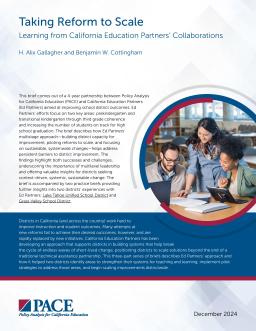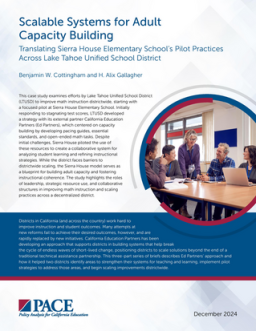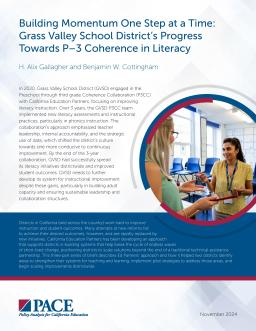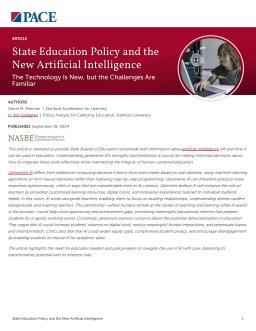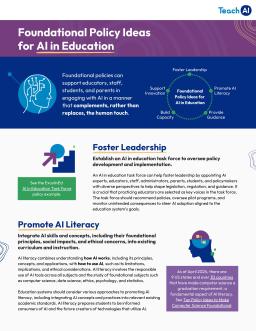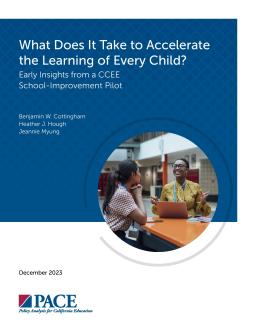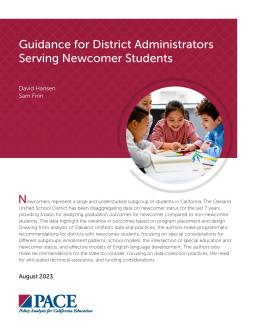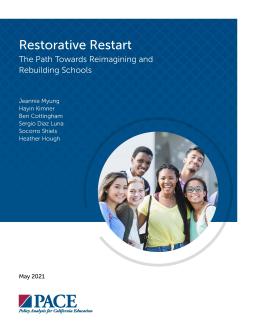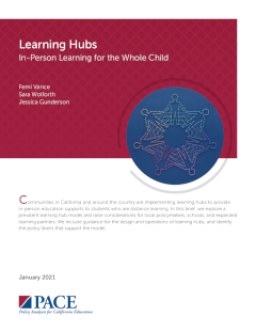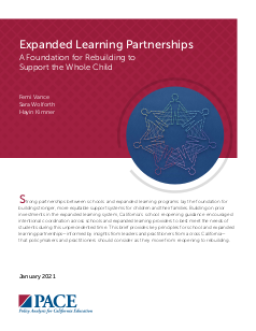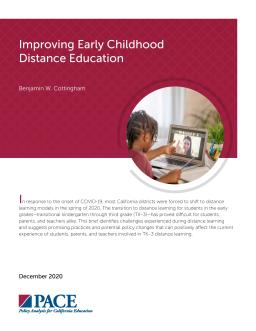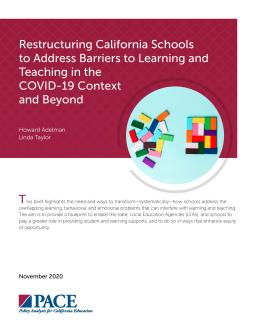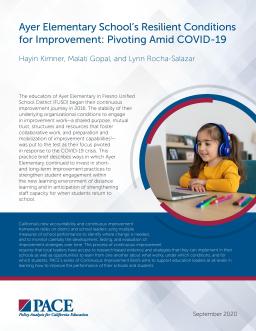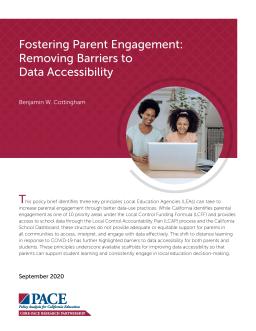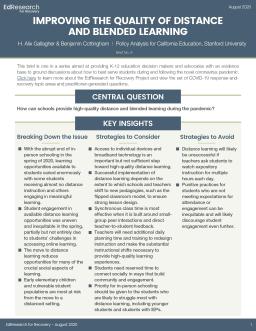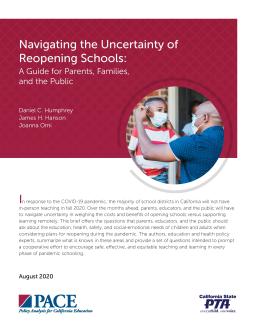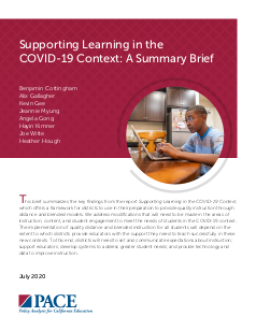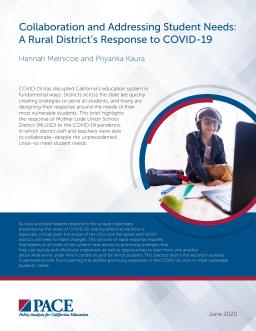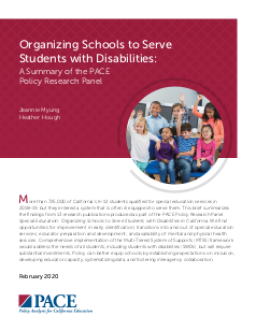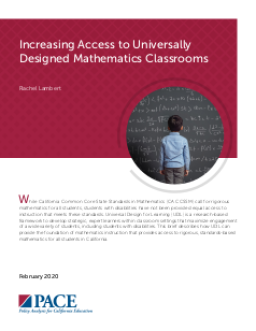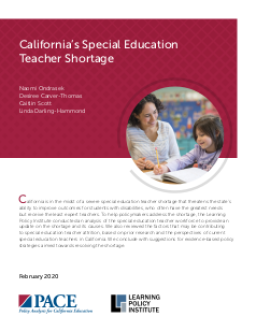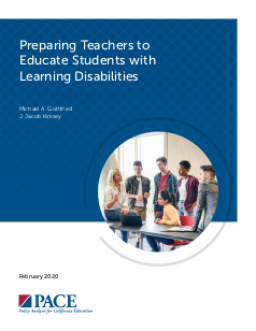Summary
Summary
Summary
Summary
Optimists believe AI will partner with teachers to provide customized learning resources, digital tutors, and innovative experiences tailored to individual students’ needs. Pessimists express concerns about the potential dehumanization of education, arguing that AI could increase students' reliance on digital tools, reduce meaningful human interactions, and perpetuate biases and misinformation. In this article, the authors highlight the need for education leaders and policymakers to navigate the use of AI with care, balancing its transformative potential with its inherent risks.
Summary
Within the TeachAI Policy Workgroup, PACE has facilitated the development of AI policy informational briefs aimed at ensuring the effective, safe, and responsible integration of AI in education. These briefs offer guidance to education leaders and policymakers, emphasizing the importance of crafting policies that prioritize teaching and learning. The briefs provide insights derived from current research and landscape analysis of AI use in TK–12 educational settings, addressing common questions and centering around five guiding principles for developing responsible AI policies in education.
Summary
Summary
Summary
Summary
The COVID-19 pandemic has affected all students; however, its impact has been particularly devastating for students of color, students from low-income families, English learners, and other marginalized children and youth. As transmission rates decline and vaccination rates increase in California, many are eager to return to normalcy, but we must all recognize that even the prepandemic normal was not working for all students. The 2021–22 school year, therefore, constitutes a critical opportunity for schools to offer students, families, and educators a restorative restart.
Summary
This brief was developed by California-based family and student engagement organizations, associations representing educators and system leaders, research institutes, and civil rights and equity groups. The recommendations arise from the evidence that has collectively emerged from focus groups with educators, parents, and students; polls and surveys of stakeholders; a deep review of the literature; and original research conducted on COVID-19’s impact on schools and students.
Summary
Summary
Summary
Summary
Summary
Summary
Parental engagement is essential to improve academic outcomes for all students, particularly low-income, Black, and Latinx students. Distance learning has intensified the need for parental support, but state policies and tools for engagement are inadequate. Local Educational Agencies can remove barriers to data access and support parent engagement by following three key principles and taking related actions.
Summary
How can schools provide high-quality distance and blended learning during the pandemic? This brief includes a mix of rigorous evidence from extant studies, data from interviews with practitioners who described their learnings from informal experimentation during the spring of 2020, and expert researchers who thought about how to apply research to the current context.
Summary
Summary
The brief argues that community school strategies can help address the social and learning impacts of COVID-19, by reforming underlying classroom, school, and district behaviors and systems that prevent student-centered collaboration, partnership, and teaching. The focus should be on student-centered learning, integrated teacher and student supports, collaborative leadership and practice, and the centrality of family and student relationships. The brief encourages all schools to adopt a community school approach, which can serve as a sustainable and successful investment.
Summary
This suite of publications provides 10 recommendations based on the PACE report to help educators and district leaders provide high-quality instruction through distance and blended learning models in the 2020-21 school year. Despite the challenges of COVID-19, research can guide decisions about student learning and engagement. These recommendations can be used as a framework to prioritize quality instruction.
Summary
Summary
Summary
This brief explains that while the California Common Core State Standards in Mathematics require rigorous instruction for all students, those with disabilities do not always have equal access to this instruction. It recommends the use of Universal Design for Learning (UDL), a research-based framework that enables expert learners within classroom settings and maximizes engagement for all students, including those with disabilities, to provide access to rigorous, standards-based mathematics instruction for all students in California.
